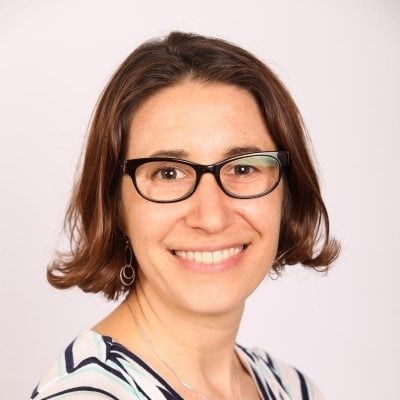Originally published on the Pursue blog.
Pursue’s Mind Your Agri-Business event on Tuesday, the second in its Chewing on Food Justice series, featured three panelists: Eleanor Starmer (Western Region Director at Food & Water Watch), Leon Vehaba (farmer from Everett Family Farm in Soquel, California), and Deborah Sellers (co-founder of Sellers Markets, a successful local sustainable multi-unit fast-casual restaurant in San Francisco with growth plans throughout the Bay Area and nationwide). The event took place at Sellers Market and started with pizza, fresh vegetables, Asian-style marinated tofu with a sweet and sour dip and sliced baguettes with a vegetarian pate spread. Moderator Zelig Golden kicked off the discussion by asking, “What is big agriculture and related concerns?” The panel had an earful for the eager audience.
Eleanor explained that big agriculture traces its roots to when, in the 1970’s, Secretary of Agriculture Earl Butz advocated a means of providing cheaper food to the consumer. His vision was to consolidate farms and markets with the motto “Get big or get out.” Since then, the United States government has favored industrial agriculture over smaller family farms with the allowance of big mergers of agriculture-related businesses to the point that the three of the major milk brands in a grocery store, Berkeley Farms, Horizon, and Silk Soy Milk, are all owned by Dean Foods.
Leon responded that he is sometimes jealous of the bigger, industrial farms that have the time-saving technology that smaller family farms typically cannot afford. Both Eleanor and Leon stressed that we need to be careful to not consider big agriculture, efficient food harvesting technology, and pesticides as the machinations of an evil system. They are all separate concepts, they said, and newer technology can yield a better price for the consumer and the farmer. Everett Farms provides a Community Supported Agriculture (CSA) produce subscription to some members of Beth Shalom Congregation in San Francisco. Though Leon loves of having a relationship with the eaters of his food, his 80-hour work week has him questioning whether he will stay in farming for the rest of his career. Some foods require more labor to harvest organically than others, he explained. For example, the farm worker has to hand cut four out of five blossoms to produce one apple, while conventionally grown apples have an herbicide that gets rid of the other four blossoms without intense labor. Organic lettuce on the other hand is cheap to harvest.
Deborah is intent on scaling up her restaurant business and consequently supporting organic sustainable farms that sell to her restaurant. Her restaurant guests love their meals, she said, but they complain about the higher prices and lack of uniformity in the organic lettuce from day to day. Deborah explained that the organic, sustainable farms she buys from aren’t large enough to supply her with consistent products every day. Another problem is distribution. When she and her husband first opened Sellers Market, they found farms that wanted to sell to them, but they couldn’t find a distributor to bring the food from the small farm to San Francisco. Once Sellers Market prepared to open a third outpost, she had a new problem. Petaluma Farms couldn’t supply chickens fast enough for their opening. Additionally, she has to buy non-local tomatoes during January because “you cannot serve a salad without tomatoes in California.”
At the end of the panel discussion, Leon proposed encouraging more people to invest in or participate in small, family farms as a way get to know their farmers. He said that crop diversification and rotation (as opposed to large scale agriculture in which one type of crop is planted) are viable ways for organic farmers to thrive. Deborah advised the audience to keep up the demand for organic sustainable food and Eleanor encouraged the audience to get involved with the debate for the next passage of the Farm Bill in 2012, noting that small farms can participate in the bill as well. Then the panelists and audience members suggested several resources on sustainable food:
- Retire Ronald, a campaign to end fast food advertising aimed at kids.
- Corporate Accountability International, which is urging San Francisco sustainable foodies to give testimony at an upcoming Land Use and Development Committee Hearing to discourage fast food restaurants from giving away toys with meals. (San Francisco’s City Hall, Room 263 on Monday, October 4 at 1:00 pm.) Email Deborah at dlapidus@stopcorporateabuse.org for more information.
- Month Without Monsanto, one woman’s pledge to go one month without eating or wearing Monsanto products.
- True Cost of Food, a Sierra Club video illustrating the industrial food system.
AJWS’s work in countries and communities changes over time, responding to the evolving needs of partner organizations and the people they serve. To learn where AJWS is supporting activists and social justice movements today, please see Where We Work.

